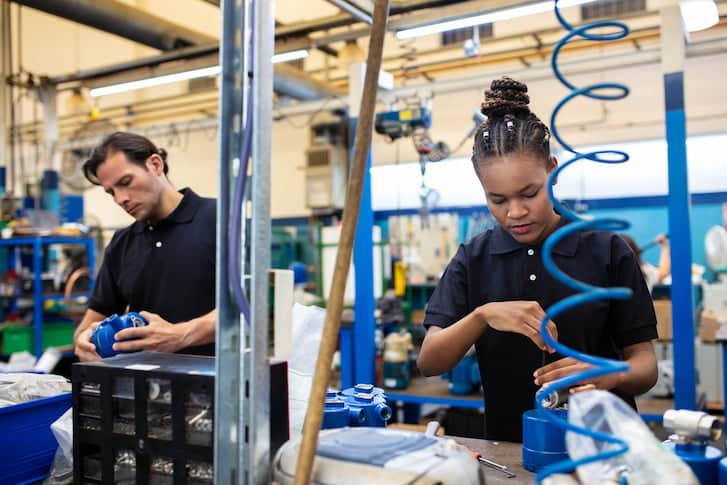
ACCI CEO Andrew McKellar
The Australian Chamber of Commerce and Industry (ACCI) has united with the business community to highlight the detrimental effects of the Federal Government’s proposed ‘Same Job, Same Pay’ industrial relations reforms.
In a joint statement signed by a number of several groups — including ACCI; the Australian Petroleum Production & Exploration Association (APPEA); the Business Council of Australia; Council of Small Business Organisations Australia; the Minerals Council of Australia; Recruitment, Consulting and Staffing Association; Master Builders Australia; and the National Farmers Federation — the business community leaders say the proposed changes will ensure employers pay workers with little knowledge or experience the same as workers with decades of skill and proficiency.
“Same Job, Same Pay is a misnomer,” says ACCI CEO Andrew McKellar.
“It’s the opposite of fair by restricting reward for effort and experience. It will take away the flexibility that workers want and businesses need.”
Government claims the proposed changes will close a “labour hire loophole”.
“If an employer agrees with their workforce and register ‘this should be the rate of pay’, you shouldn’t then be able to go to a labour hire company and completely undercut what you’ve just agreed to,” Employment and Workplace Relations Minister the Hon Tony Burke MP told ABC Radio.
McKellar says, on average, labour hire employees are earning more than their permanent counterparts.
“Claims that labour hire workers across the economy are paid less than employees are patently false,” he says.
“Eliminating flexibility will weaken the economy, punish workers and drive up costs for consumers.”
The latest upheaval to Australia’s workplace relations regime will lead to lower wage growth and fewer jobs, ACCI says.
It will also curb businesses’ ability to “ramp up and ramp down” as required.
“Workplace rigidity will ensure these opportunities for growth will either go begging, or companies will be forced to endure a never-ending rollercoaster of hiring and firing as project development, construction and commodity prices rise or fall,” the group says.
Tania Constable, Minerals Council of Australia CEO, says workplaces should be about fairness, with reward for effort and experience.
“How is it fair that someone with six-months’ experience can demand the same pay as someone with six-years’ experience?” Constable says.
“[We don’t need] a blanket approach that fails to understand that all workplaces are unique and worker ambition and values, varied. Employees should expect to be paid on their experience, skills and qualifications.
“This dangerous ‘policy is just the latest on a long series of attacks on Australian businesses that have cumulative effect of chasing away investment and jobs, hampering our economic recovery from COVID, and undermining Australia’s role in, and beneficiary of, a once-in-a-multi-generation clean energy boom.”
 BHP has previously said the initiative would cost its Australian operations as much as $1.3 billion per year, threatening “serious damage to every level of the Australian economy”.
BHP has previously said the initiative would cost its Australian operations as much as $1.3 billion per year, threatening “serious damage to every level of the Australian economy”.
One of WA’s largest contract miners, Byrnecut Group’s Executive Director and Co-founder Steve Coughlan has also been critical of the Government’s initiative, saying it was “ridiculous”.
“Fair dinkum, get out in the real world,” he told a recent WA Mining Club lunch.
“It doesn’t work like that; the world doesn’t work like that.”
For general employee advice and guidance, contact CCIWA’s Employee Relations Advice Centre on (08) 9365 7660 or email [email protected]






